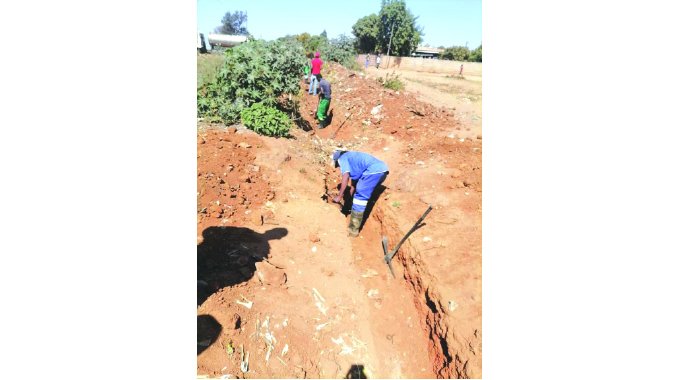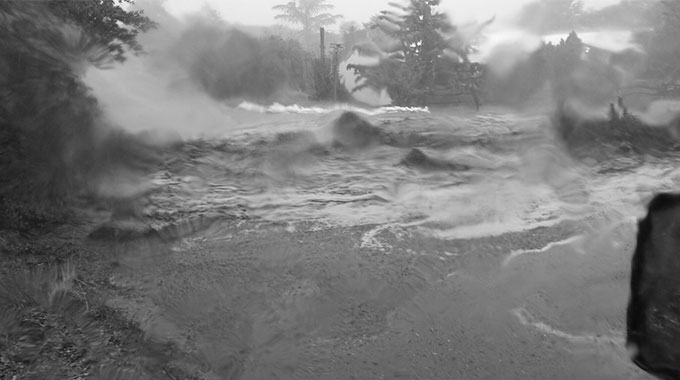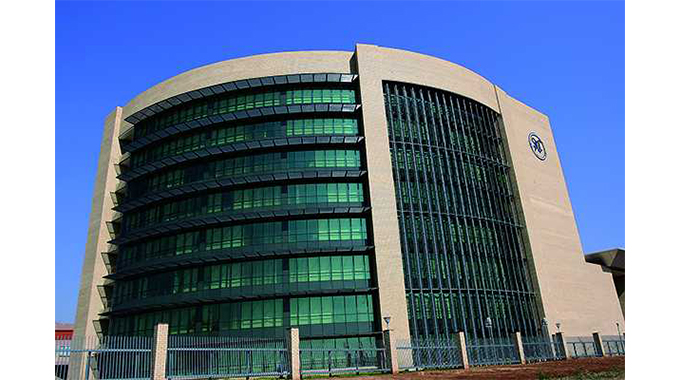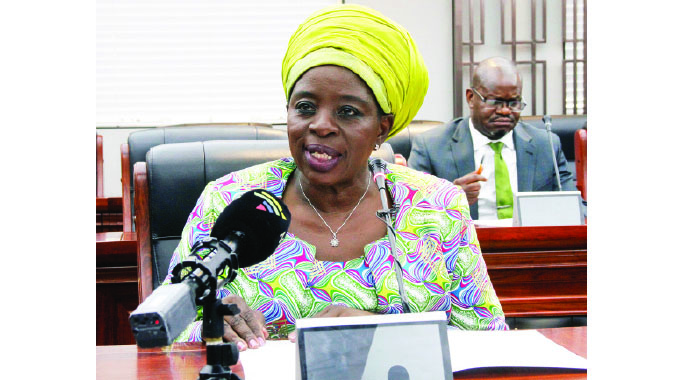Rain brings both joy and sadness to Gweru residents

Patrick Chitumba, Midlands Bureau Chief
AS farmers across the country expedite land preparations for the 2022/23 summer cropping season, the case is not the same for many residents in Gweru.
While the rains bring water for summer crops such as rapoko, sorghum, maize, and sunflower as well as fill dams and underground water sources, residents in Gweru are always on the edge when it rains.
This is because they are forced to count their losses due to perennial flooding of their homes each time it rains and there are flash floods.

The latest forecast by climate experts at the 26th Southern African Regional Climate Outlook Forum (SARCOF) held virtually and chaired by the Democratic Republic of Congo (DRC) showed that there was greater potential for normal to above normal rainfall for the bulk of the region, ushering in an opportunity for good agricultural performance.
The possibility of flooding in some parts presented risks that require adequate preparedness and contingency planning.
With this in mind, there is some sense of panic among Gweru residents, especially those in the flash flooding areas such as Mambo, Mtapa, Ascot Infill, Mkoba 6, Mkoba 4, 9, and 10 suburbs.
Riverside and Nashville suburbs are also prone to flash floods which lead to flooding of homes.
According to Mr Peter Makwanya, a climate change researcher and lecturer at Zimbabwe Open University, thunderstorms and excessive rain are all commonly recognised causes of floods.
He said flooding also occurs due to overburdened or clogged sewage and drainage systems, urbanisation (such as paving).
“Flooding can occur in a fast or slow fashion, affecting obvious areas as well as those that appear completely harmless in dry weather. Floods impact both individuals and communities, and have social, economic, and environmental consequences,” said Mr Makwanya.
He said the consequences of floods, both negative and positive, vary greatly depending on the location and extent of flooding, and the vulnerability and value of the natural and constructed environments they affect.
“Floods lead to loss of property, livestock, businesses, and the general socio-economic activities and therefore the need to prepare for them and avoid unnecessary destruction where possible like clearing of storm drains by residents and local authorities,” said Mr Makwanya.
Flood damage is defined as all the varieties of harm provoked by flooding. It includes all detrimental effects on people, their health, and properties; on public and private infrastructure, ecological systems, cultural heritage, and economic activities.
Mr Makwanya said floods can traumatise victims and their families for long periods of time.

Peter Makwanya
“The loss of loved ones has deep impacts, especially on children. Displacement from one’s home, loss of property and disruption to business and social affairs can cause continuing stress. For some people, the psychological impacts can be long-lasting,” said Mr Makwanya.
Ms Marian Shumba of Mambo suburb lost most of her property to floods in the last rain season. Her three children were left with no food or blankets. The thought of floods traumatises her.
“Every time it rains I get goosebumps all over my body. Council is still to clear the storm drains and if there are heavy rains, it will definitely flood,” she said. To prevent flooding in cities, authorities are encouraged to create flood plains and overflow areas for rivers, separate rainwater from the sewer system as well as install water infiltration and attenuation systems.
Mr Cornelius Selipiwe, Gweru Residents and Ratepayers’ Association director said the council was not doing enough to avert flooding challenges.
“What is clear is that a battle is won by proper preparations. We have noted that the council has not been proactive but rather is accustomed to being reactive. We haven’t seen any meaningful drainage clearance across the city,” he said.
Mr Selipiwe said residents need to be taught on proper disposal of waste.

Storm drain blockage in Mkoba 5 suburb
“Residents are just throwing litter everywhere. If we have rains as predicted by the Met Department, then we’re going to have a disaster just like what has been the case in the last two seasons,” he said.
City of Gweru public relations officer Ms Vimbai Chingwaramusee said the council has covered over 40 kilometres of culverts and drainage clearance.
“We cleared and we have been clearing drainages however, we face challenges with residents who constantly block the drainages and culverts by constantly dumping litter in the drainages. Some who are into farming also have a tendency of farming close to drainage. This makes the soil loose such that when it rains, the soil flows into the drainages and blocks them,” she said.
Ms Chingwaramusee encouraged residents to reciprocate council efforts by ensuring that when drains are cleared, they don’t reclog them.
“This is costly to them when we experience heavy rains and it is costly to us when we have to unclog drains again,” she said. Ms Chingwaramusee said they have engaged 48 people for the job.
“It means each ward has six people who rotate across all the wards. We encourage residents to also report all clogged drainages to our client liaison clerk teams and they should also feel free to call on our toll-free line,” she said.

Ms Vimbai Chingwaramusee
SARCOF 26 was held under the theme: “Early warning and early action: Sadc region preparedness towards a ‘ready-set-go!”
The forecast for the next season shows the whole of the southern two-thirds of Sadc, including Zimbabwe, should have normal to above normal rainfall in the first three months, with normal to below normal rainfall in northern Zambia and Malawi going north.
“Bulk of the Sadc region is likely to receive normal to above normal rainfall for most of the period October to December 2022 with the north-western part of Angola, bulk of DRC, Tanzania, northern Zambia, northern Malawi, Northern Mozambique, Comoros, Madagascar, Mauritius and Seychelles where normal to below normal rains are expected,” said the SARCOF 26 statement.
Climate experts warned that increased chances of normal to above normal rainfall could lead to flooding in flood prone areas, increased plant and livestock diseases and destruction of crops in some areas.
They urged farmers to avoid planting in flood prone areas, to grow disease tolerant varieties, practice rain harvesting and adopt appropriate water retention structures to control floods.

THE Southern African Development Community (Sadc)
Improving drainage for excess water was also critical, they said. In addition, climate experts said there was the likelihood of flash floods, increased flows into reservoirs and turbulent river flows which could lead to increased dam siltation and a possibility of damage to low cost dam infrastructure.
In Zimbabwe, experts warned of flash flooding in low-lying areas and landslides in the eastern parts of the country.











Comments